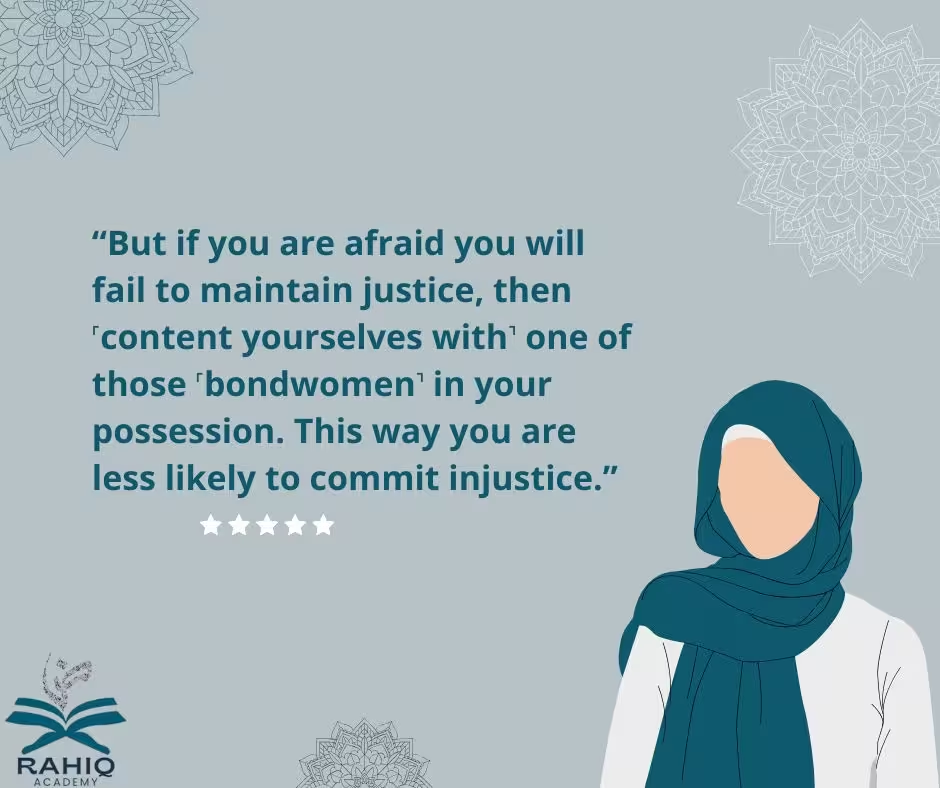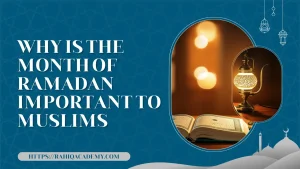Polygamy in Islam is often misunderstood. However, Islam sets clear guidelines to ensure fairness and protect the rights of all involved. This article explores the wisdom and conditions for polygamy in Islam.
What is Polygamy in Islam?

Many people ask, What is polygamy in Islam? The answer is that polygamy means a man can be married to more than one woman—up to four—at the same time. It is permitted in Islam, but only under specific conditions.
Allah allowed polygamy in the following verse:
“وَإِنْ خِفْتُمْ أَلَّا تُقْسِطُوا۟ فِى ٱلْيَتَـٰمَىٰ فَٱنكِحُوا۟ مَا طَابَ لَكُم مِّنَ ٱلنِّسَآءِ مَثْنَىٰ وَثُلَـٰثَ وَرُبَـٰعَ ۖ فَإِنْ خِفْتُمْ أَلَّا تَعْدِلُوا۟” فَوَٰحِدَةً أَوْ مَا مَلَكَتْ أَيْمَـٰنُكُمْ ۚ ذَٰلِكَ أَدْنَىٰٓ أَلَّا تَعُولُوا۟ ٣”
“If you fear you might fail to give orphan women their ˹due˺ rights ˹if you were to marry them˺, then marry other women of your choice—two, three, or four. But if you are afraid you will fail to maintain justice, then ˹content yourselves with˺ one or those ˹bondwomen˺ in your possession. This way you are less likely to commit injustice.”
What are The Reasons for Polygamy in Islam?
Allah Almighty permitted polygamy because it carries hidden benefits for both spouses. These include:
Helping men maintain chastity:
Some men may have a high level of desire that cannot be fulfilled by one or even two wives. Islam allows up to four wives so that the man can remain chaste and avoid unlawful relationships.
Chastity for women:
In some times and places, especially after wars, the number of women may greatly exceed the number of men. In His mercy, Allah permitted men to marry up to four women to protect and support them.
This ensures dignity and protection for women—being married, even if sharing a husband with others, is better than being left without one.
Increasing offspring:
One of the key reasons for polygamy in Islam is that polygamy can also help grow the Muslim community by encouraging larger families, as encouraged by the Prophet ﷺ.
وَعَنْ مَعْقِلِ بْنِ يَسَارٍ قَالَ: قَالَ رَسُولُ اللَّهِ صَلَّى اللَّهُ عَلَيْهِ وَسَلَّمَ: «تَزَوَّجُوا الْوَدُودَ الْوَلُودَ فَإِنِّي مُكَاثِرٌ بِكُمُ الْأُمَم» . رَوَاهُ أَبُو دَاوُد وَالنَّسَائِيّ
Ma’qil b. Yasar reported God’s Messenger as saying, “Marry women who are loving and very prolific, for I shall outnumber the peoples by you.”
Abu Dawud and Nasa’i transmitted it.
Social cohesion:
When a man marries more than one woman and treats them fairly, it strengthens ties between families and creates harmony.
The Prophet ﷺ married women from different tribes to spread Islam and build unity, increasing cooperation among Muslims.
polygamy rules in islam
Islam allows a man to marry up to four wives but with certain rules and conditions, including:
Financial capability:
One of the most important conditions is that the man must be financially able to support all his wives and provide them with a decent life.
Physical capability:
One of the most important polygamy rules in Islam is that the husband must also be physically capable of fulfilling his marital duties with more than one wife.
Requirement of Justice:
The requirement of justice is one of the most critical conditions for polygamy in Islam. Islam permits polygamy only if the man can treat all his wives fairly.
If a man fears that he may not be able to uphold justice among his wives, then Islam commands him to marry only one to avoid wrongdoing.
“فَإِنْ خِفْتُمْ أَلَّا تَعْدِلُوا۟” فَوَٰحِدَةً أَوْ مَا مَلَكَتْ أَيْمَـٰنُكُمْ ۚ ذَٰلِكَ أَدْنَىٰٓ أَلَّا تَعُولُوا۟ ”
“But if you are afraid you will fail to maintain justice, then ˹content yourselves with˺ one of those ˹bondwomen˺ in your possession. This way you are less likely to commit injustice.
Conclusion
In summary, Islam does not encourage polygamy without limits. Instead, it lays down strict conditions for polygamy in Islam, such as financial ability, physical capability, and—most importantly—justice among wives. These conditions are not merely suggestions but essential requirements to preserve harmony, dignity, and fairness within families.
If you’re interested in deepening your knowledge of the Qur’an and Islamic teachings, join Rahiq Academy’s courses to learn the Qur’an, Fiqh, and more from qualified scholars—whether you’re a beginner or looking to advance your understanding.
FAQ
Q: Was polygamy normal in history?
A: Yes, polygamy existed in many historical periods, including during the time of the pharaohs. It was common in the Arabian Peninsula before the Prophet Muhammad ﷺ.
Polygamy is also permitted in Judaism. The Torah contains clear texts that allow it, and it was practiced by prophets such as Ibrahim, Isaac, and Jacob ﷺ.
Q: What are the conditions to marry a second wife in Islam?
A: The conditions for polygamy in Islam when marrying a second wife include the following:
- Justice between wives.
- Financial capability.
- Physical capability.
Q: Why was polygamy allowed in Islam?
A: Islam permits polygamy to serve the welfare of the Muslim community, offering several key benefits such as
- Chastity for men.
- Chastity for women.
- Increasing the number of children in the Muslim nation.
- Strengthening social ties between families and the community.




